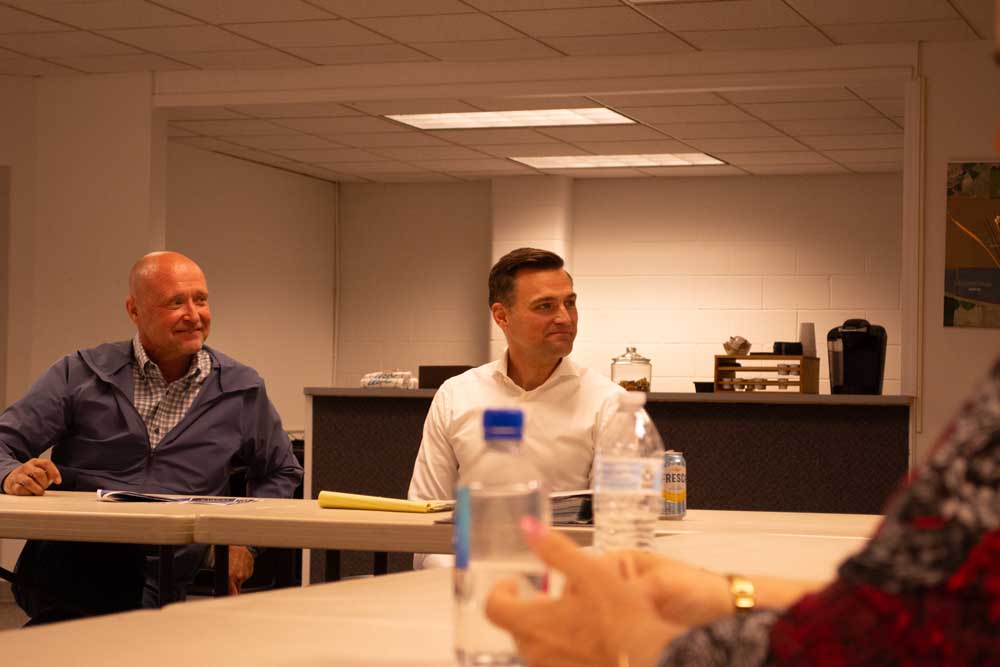Capital Chatter: Now is the time for transportation planning
Published 4:00 pm Thursday, August 15, 2024

- capital chatter logo
Most Oregonians, says House Speaker Julie Fahey, don’t spend their day pondering the state’s transportation system.
Trending
Now is the time.
The Oregon Department of Transportation says it faces a gigantic shortfall – nearly $1.8 billion, give or take a few dollars here or there. Portland-area residents want major freeway improvements. Or not. Tolling looms eventually for metro-area freeways and bridges – or not – but certainly for replacing the Interstate Bridge(s) across the Columbia River. Meanwhile, pedestrians, cyclists and motorists face myriad safety issues.
And a recent report card by the American Society of Civil Engineers found the state’s infrastructure, including transportation, ranks as barely passable. Among the grades, Aviation, Bridges and Ports each earned a C-minus; Roads, C; and Transit, D+.
Ouch.
Did I mention that any proposal to raise transportation-related taxes and fees in the 2025 Legislature will die unless it has overwhelming bipartisan support?
The task of solving these issues falls to our first-term governor, Tina Kotek, and relatively new legislative leadership. Fahey, D-Eugene, has run the House since March. Rob Wagner, D-Lake Oswego, became Senate president in January 2023. Having been chosen last September, House Republican Leader Jeff Helfrich, of Hood River, is the longest-tenured of the four partisan caucus leaders.
I sat down with Fahey last week at Sweet Tree Cafe & Espresso in West Eugene for a wide-ranging discussion. I’ll share more in future columns. Today I want to focus on transportation.
Here are excerpts, which have been lightly edited.
On her focus: “As the speaker, I’m invested in both the success of the membership but more importantly, what are the problems that we need to solve as a Legislature, whether it’s housing or homelessness or behavioral health or transportation planning? I think I don’t see it so much as a partisan agenda as, ‘What are the issues that we’re facing as a state, and how do we tackle those?’”
On the Joint Committee on Transportation’s statewide tour: “That’s an opportunity for the public and community leaders to talk to legislators about what’s important to them in terms of needs and in terms of what the funding solutions would be. … But it’s also sort of a general education campaign about what’s going on in our transportation system, which is not a thing that most people think about every day unless it’s going wrong. We were the first state in the country to do a gas tax over 100 years ago, and that worked great in the 20th century, but it’s not working so great anymore.
“So that sort of is the first step in the process, really, of making sure that we’re getting input from the public and then having that two-way dialogue.”
On what comes next: “Pretty quickly here, we’re going to enter into the next phase of the process, which is sort of stakeholder management, getting folks at the table – legislators and the folks that are interested, [including] AAA, the truckers and environmental groups – to start talking about solutions.
“We’ll roll out what that work-group process looks like next month. But it’s making sure that people feel heard and that they see themselves in the final solution.”
On seeking the pragmatic instead of the perfect: “There isn’t going to be any one thing that is proposed in that package that every person loves. Any piece of that package, someone could raise their hand and say, ‘I don’t like this about that.’
“But the entirety of the thing needs to hang together. And when I say it needs to hang together, one of the goals is to modernize our funding system for transportation. I talked about the gas tax. What is our transportation funding system going to look like in 20 years and 30 years? When there’s kind of a transition to EVs or other changes in how we drive?
“We don’t need to be there today, right? But we’ve got to figure out, what are the steps to get us to a system that will work in 20 years? Otherwise, the problem will be even worse.”
On bringing in someone to oversee the process: “Part of the thinking behind why Wagner and I are hiring the project manager role out of our office is that that person explicitly is not like a transportation policy adviser. They have to know something about transportation, and they can’t be totally new to the field, but their job is to manage the process and to make sure that the things that need to happen, are happening.
“And yeah, to manage sort of the legislators involved, to manage across the chambers, which is really important. This has got to be a cross-chamber endeavor. It can’t be the House or the Senate going off on our own.”
The next stops on the transportation committee’s tour are Aug. 28 at Meyer McLean Memorial Theater in Ontario and Aug. 29 at Eastern Oregon Trade and Event Center in Hermiston.





